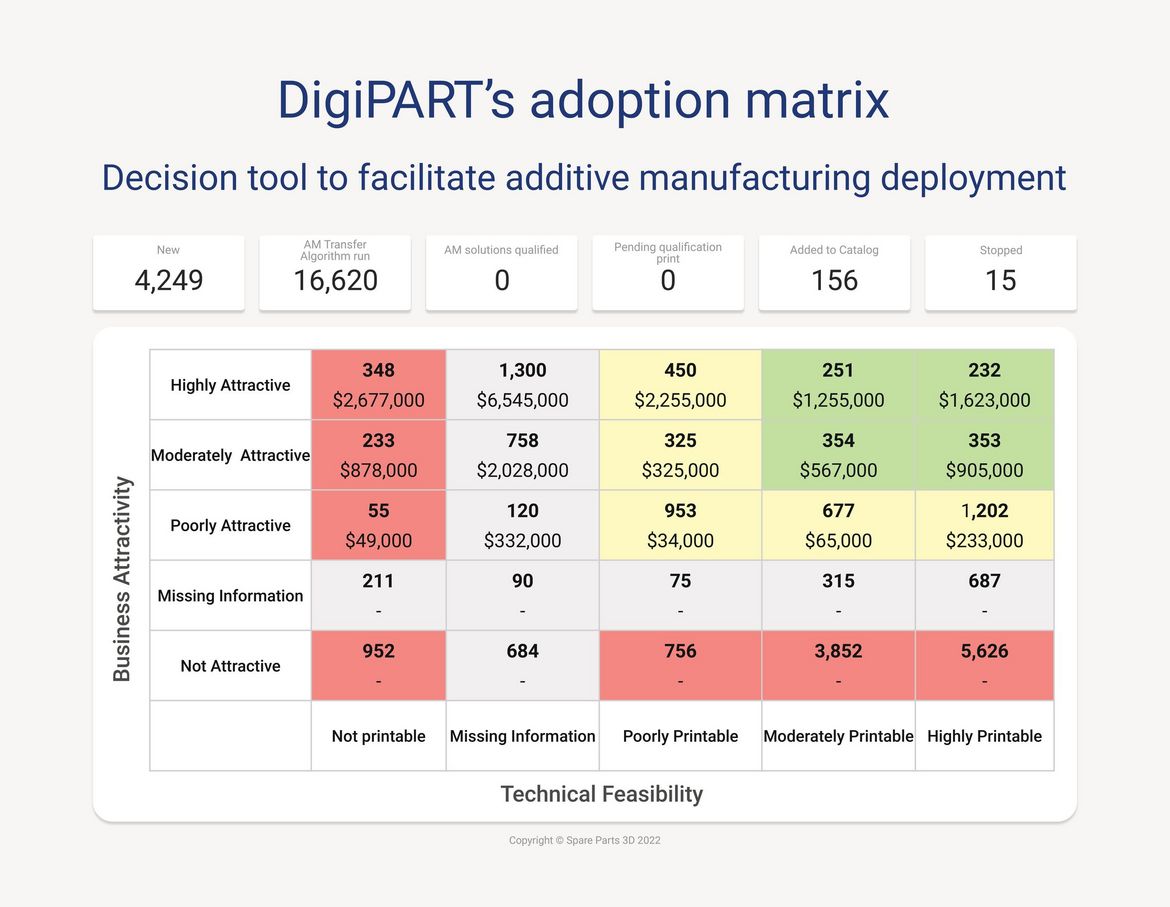Companies news • Analyses & Studies • Portraits • Publications
CEO Sustainability Series | Olivier Mathey, Executive Vice President of Sales Spare Parts 3D

As part of the Sustainable Business initiative, the French Chamber of Commerce in Singapore presents a leadership interview series where we invite CEOs and key executives to discuss crucial management qualities that drive successful sustainable transformation
Question 1. What has your company’s sustainability journey been like so far?
Sustainability has been part of the definition of our mission and purpose. Our vision is to reduce the waste associated with spare parts supply chain.
There are millions of spare parts sitting on shelves across the world being manufactured, maintained for years if not decades (costing manpower, land, and resources) and most of them will eventually be scrapped. A technology like Additive Manufacturing enables to produce parts in small quantity with short lead time at reasonable cost and potentially without international logistic. Revolution or Evolution?
Q2. How is technology helping your company achieve its sustainability targets?
We are automating our engineering expertise in Additive Manufacturing enhanced with proprietary algorithms based on Artificial Intelligence, especially Machine Learning. The lack of know-how related to Additive Manufacturing within our customers organisation is the main bottleneck. We propose a hybrid collaboration: we enable and /or accelerate their AM deployment and empower them to ensure they remain in control of their Digitisation RoadMap.
Q3. How do you see expectations and attitudes towards sustainability changing among your employees, customers, and partners?
Originally our customers were looking at simplification from a cost standpoint only. Additive Manufacturing combined with Digital Inventory enable the implementation of Distributed Manufacturing: Print (only) what you need, when and where you need it.
Over the past three years, the chaotic supply chain has forced our customers to be more proactive in revisiting their traditional organisation. In parallel more companies are committing to factual targets of CO2 reduction. The scope 3 of the Greenhouse Gas (GHG) Protocol – related to logistic – can be a big part of their emissions. In addition, increasingly, companies are integrating CO2 emissions in their tenders for equipment manufacturing and maintenance.
The best way to reduce those related CO2 emission is to not print the part until it is needed and stop moving the part across the globe. Therefore, the importance of distributed manufacturing is increasing.
Digital Inventory and Distributed manufacturing are ready solutions. What about our customers? We see the shift in industrial companies’ mindset. It is no longer a matter of IF they will have a digital inventory ready for additive manufacturing but WHEN… and HOW to implement it?

Q4. What are the impacts on your organisation?
Customers are realising that implementation of Digital Inventory ready for Additive Manufacturing is a journey. They don’t have the right resources to start today. And they can’t wait any longer as the cost of doing nothing becomes more and more expensive! We develop the ability to work with partial data and to provide hybrid support: from Turn-key part inventory Assessment Project to Software as a Service.
The other visible evolution, is how we have progressively moved from talking exclusively to the engineering community at our customers to talking to supply chain, procurement, strategy departments. This is a sign that the subject of digital inventory for additive manufacturing is now out of the innovation sandbox and becoming a mainstream, strategic tool to generate value. F

This interview was conducted with Olivier Mathey, Executive Vice President of Sales, Spare Parts 3D
August 2022 | French Chamber of Commerce in Singapore


